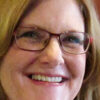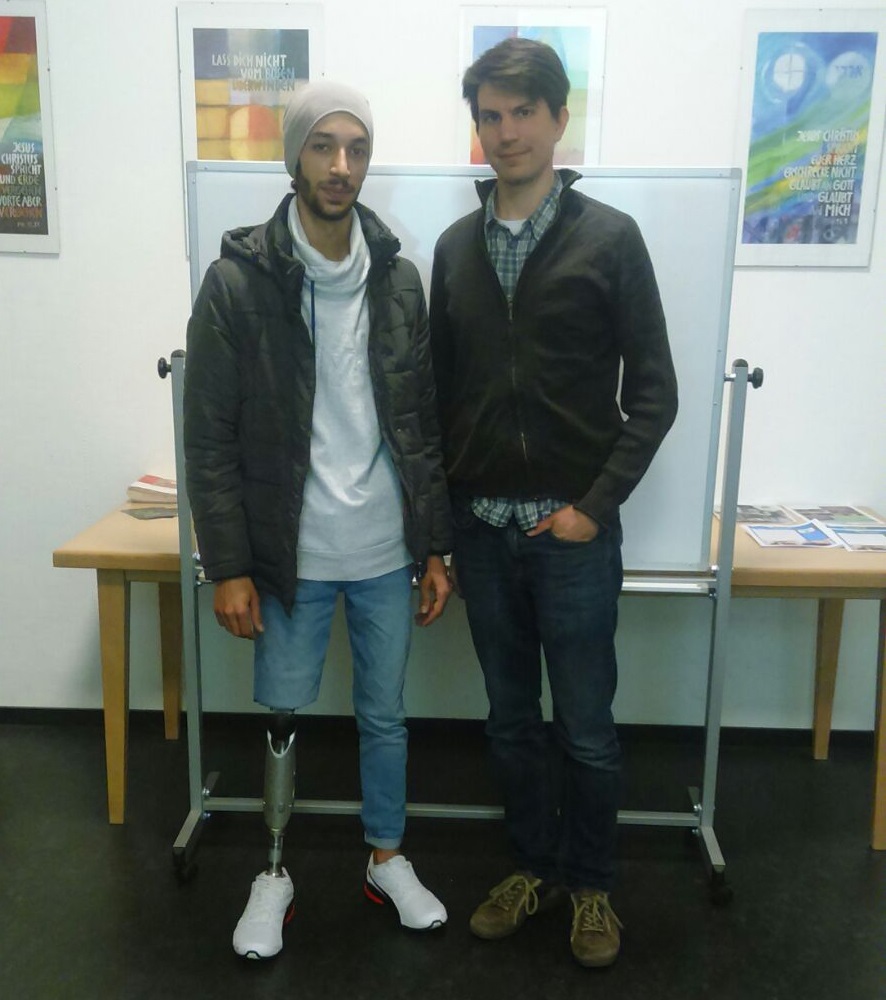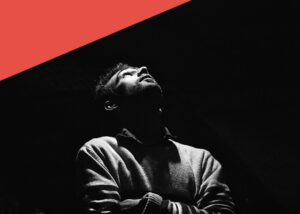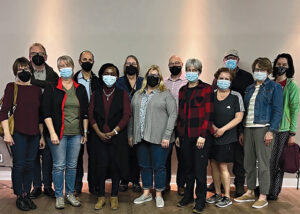For 21-year-old Amjad, trauma led to hope and solidified his unwavering faith in God’s protection. Amjad, a Syrian refugee in Ludwigshafen, Germany, lost his leg when a bomb fell on a street in Syria.
Gregory Rabus and his wife, Jennifer Otto, Mennonite Church Canada Witness workers in Ludwigshafen, met Amjad (no last name for security reasons) at Peace House (Friedenshaus), a locally initiated ministry where they help welcome refugees. Rabus describes Amjad as “a quiet and soft-spoken fellow with a bit of a skater vibe. He’s the kind of guy you could imagine in a skate park or at a Bruno Mars concert.”
But that image belies Amjad’s experience.
A few years ago, as the Syrian war raged, Amjad was enrolled in his second year of university, studying to be a train mechanic and grieving the disappearance of his brother who was incarcerated by the government without explanation. He was also volunteering for the Red Crescent, the Muslim version of the Red Cross, as an emergency paramedic.
In 2013, the Red Crescent responded to an air raid in Aleppo. As Amjad assisted the wounded, another bomb fell. The shrapnel tore through his leg and abdomen, and cut off his toes. Because attending the government-controlled hospital in Aleppo meant risking the draft or incarceration, he was taken to a local clinic. Without the availability of proper equipment or sterilization procedures, a pediatrician sawed off his leg at the ankle. When infection set in, another amputation was performed at the calf, and finally, the thigh.
In the fall of 2015, Amjad headed for Germany, where his sister had gone six months earlier. For 12 days, he struggled towards the Turkish border, alone and on crutches, sleeping in villages and on the streets along the way. Over the next month, he made his way to Germany with other Syrian refugees, travelling by bus, ferry and train through Turkey, Greece and the Balkans.
On the Greek island of Chios, Amjad met, and became close friends with, Rias, another Syrian refugee. When the pair arrived in Ludwigshafen in early 2016, Rias discovered Peace House and began taking German lessons from Rabus. In return, Rias taught Rabus Arabic. He also asked Rabus if he could contact a prosthetics doctor on Amjad’s behalf. With the translation efforts of both Rias and Rabus, Amjad was able to meet and communicate with the doctor.
Rabus says he found great joy in the conversations he since had with Amjad.
“One conversation was about God, and how Amjad wanted to express his faith in God's protection, a remarkable thing for this young man, of all people, to say,” Rabus notes. “Another conversation was about Amjad's goals for the future. He was so impressed by the prosthesis practice that he himself would like to be trained in making prosthetics for others.”
Rabus says that entering the German job market is extremely difficult for refugees, but Amjad’s dream seems to be feasible and realistic, and Amjad visibly lightened up on hearing this. “But before that, he needs training, and before that, he needs to learn German, and before that, he needs a leg.”
Amjad now has that leg.
“It's a prayer answered and a beam of hope in this young man’s life,” Rabus says. “And now life—and German courses—can begin!”
Although Amjad’s prospects seem to be moving forward, his family is scattered. One of his brothers is now in Egypt, and his younger sister and parents are still in Syria.
“Because the lives of so many people we know here are wrought with setbacks, Jen and I are thankful and inspired by this small sign of hope,” Rabus says. “We pray for Amjad and for all those who struggle with pain and endless setbacks, that they experience God's grace and love, and can pass it on to others.”
With files from Gregory Rabus.








Leave a Reply
You must be logged in to post a comment.